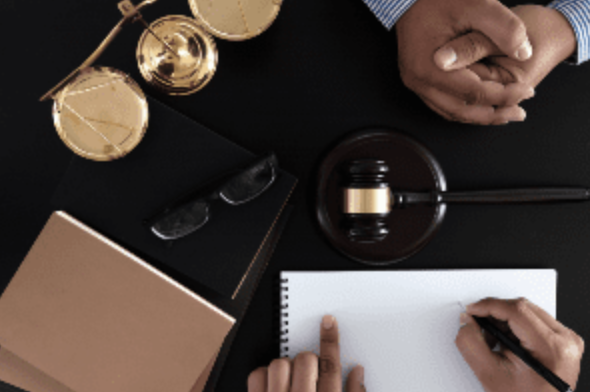
How Do Criminal Cases Move Through the Florida Court System?
Entering the criminal justice system as a defendant can be complicated and overwhelming, especially if you aren’t sure what to expect during your trial. Criminal defense cases have many steps, spanning from a defendant’s initial arrest up until their sentencing hearing.
To get a better understanding of the process by which criminal cases are moved through the court system in Florida, take a look below as we discuss the different levels that are involved in each trial.
Arrest and Initial Appearance
Arrests occur when a person has been apprehended by law enforcement for misconduct or criminal behavior. Officers may have witnessed the crime, or they may have a warrant for an individual’s arrest based on probable cause. After an arrest, the individual must be brought in front of a judge within 24 hours for an initial appearance.
During an initial appearance, a judge will assess the basic details of the case including the defendant’s name, address, and whether or not they can afford legal representation. If they require a court-appointed attorney, the judge will assign one during the initial appearance.
Preliminary Hearing
Often considered “the trial before the trial,” a preliminary hearing allows the judge to hear evidence and testimony from any witnesses that might be called on by the prosecuting attorney or the defendant’s legal representation. During these hearings, the judge will be able to determine whether or not there is enough substantial evidence to move the case forward. If they believe the defendant was likely to commit the crime, the defendant is held for trial while their defense attorney schedules a date for an arraignment.
Arraignment and Pleas
During the arraignment, defendants have the option to enter a plea of guilty, not guilty, or no contest. This will be a decision that the defendant makes with their attorney before the arraignment hearing. The judge will set a trial date if the defendant chooses to enter a not guilty plea, but if they submit a guilty plea or declare no contest, the judge will then schedule a date to sentence the defendant for the charge lobbied against them by the prosecution.
Trial and Court Proceedings
Throughout a criminal trial, evidence and witness testimony will be provided by both the defendant and the prosecutor’s attorneys to prove to the judge and jury that the defendant either did or did not commit the crime beyond any reasonable doubt.
If the defendant’s attorney believes there is not enough substantial evidence to convict their client, they may ask for an acquittal. This positions the case in the defendant’s favor and makes it the responsibility of the prosecuting attorney to present enough legitimate evidence to rule against them. Should a judge find that there is a lack of evidence needed to reach a verdict on the defendant’s guilt, the judge will end the case and rule in favor of the defendant.
Closing Arguments from Both Sides
Before the judge and jury make their final decisions, members of the prosecution and the defense have an opportunity to make closing arguments, which allow attorneys to address the court for a final time before the case is closed.
During closing arguments, the judge allows the prosecutor to speak first, followed by the defense attorney. The prosecutor is then given a final opportunity to talk after the defense rests its case.
Jury Deliberations
Once both of the attorneys make their closing remarks, the jury is ushered into a room where they then elect a foreman to represent them and lead the discussion of the case. Being on the jury means considering different sides of the argument and examining all available evidence in addition to reviewing testimony, witness statements, videotapes, or photographs to reach their final verdict.
Final Verdict and Sentencing Hearings
After the court is called back to session, the jury foreman provides a written verdict to the judge, which is then read aloud by one of the officials. If the defendant is found not guilty, they are immediately released, but if they are found guilty, the judge will set a date for their sentencing and the defendant may temporarily be held in state custody.
If the court rules that a defendant is guilty of the crimes for which they were charged, they are asked to attend a sentencing hearing. This hearing determines the assigned punishment that a convicted defendant will be subject to and the parameters of their sentence, based on the judge’s reception of testimony from both the defense and the prosecution regarding an appropriate punishment for the convicted defendant’s crime.
Bring Your Case to an Experienced Attorney in Orlando, Florida
If you want to avoid the confusion of the court system, you will need an attorney by your side that you can trust. The criminal defense team at The Umansky Law Firm has experience helping people just like you get the best outcome possible for their cases in Central Florida. Whether you were wrongfully charged or falsely accused, our firm of dependable and trustworthy defense attorneys will work with you to obtain justice.
When you’re ready to move forward with your case, call our office or contact us online to schedule your free consultation with one of our world-class attorneys.



